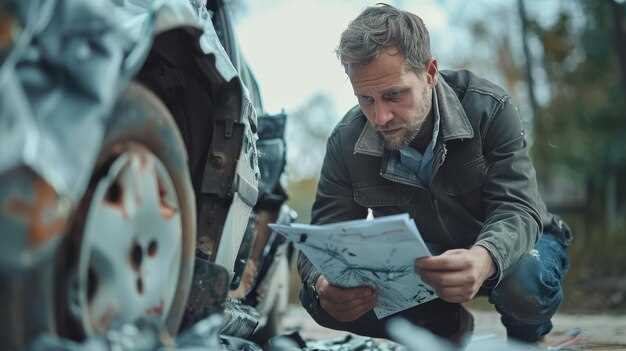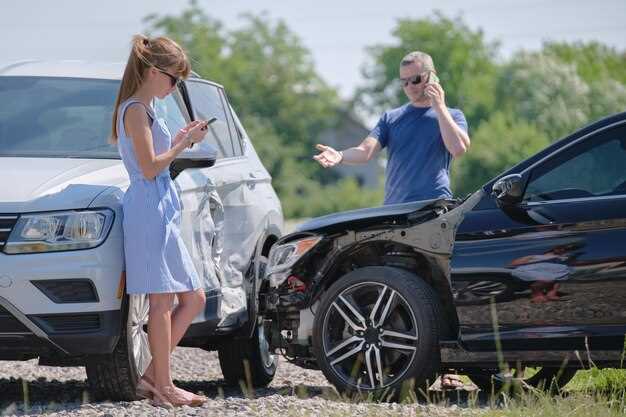
When it comes to purchasing a vehicle, many buyers encounter the term “salvage car.” Unfortunately, this label is often shrouded in myths and misconceptions that can lead to misunderstanding and hesitation. A salvage car is typically a vehicle that has been deemed a total loss by an insurance company due to damage, theft, or other issues. However, the realities of owning and driving a salvage car are frequently misrepresented.
One of the most pervasive myths is that salvage cars are always dangerous or unreliable. While it is true that some salvage cars may have sustained significant damage, others have been repaired to high standards and can serve as reliable transportation. It’s essential for potential buyers to approach salvage cars with informed scrutiny rather than fear. Conducting thorough research, seeking a professional inspection, and understanding the specific history of the car can help dispel this myth.
Another common misconception is that salvage cars are not worth fixing. Contrary to this belief, many individuals successfully restore salvage vehicles to excellent condition, often at a fraction of the cost of purchasing a new car. This can make salvage cars a viable option for budget-conscious buyers looking for value without sacrificing quality. In this article, we will delve deeper into these myths, providing clarity and insight to help prospective buyers make informed decisions about salvage vehicles.
Understanding the True Value of Salvage Vehicles

Salvage vehicles often carry a stigma, leading many to underestimate their true worth. It’s essential to separate facts from myths when assessing these cars. A salvage vehicle is typically one that has been declared a total loss by an insurance company due to damage from accidents, theft, or natural disasters. However, this designation does not inherently mean the vehicle is beyond repair or unsafe to drive.
One key fact is that salvage cars can offer significant savings over their non-salvage counterparts. Buyers can often acquire a vehicle for half the price of a similar model in good condition. This affordability can provide an excellent opportunity for budget-conscious consumers or those looking to rebuild a vehicle. Moreover, many salvage cars can be restored to good working condition with the proper repairs and expertise.
Another important aspect to consider is the potential for value appreciation. After repairs and necessary inspections, many salvage vehicles can be retitled and restored, making them eligible for resale. If done correctly, owners can see a return on their investment, especially for models that are rare or in high demand. Proper documentation and a clear history of repairs can further enhance the resale value.
Additionally, salvage vehicles often come with unique benefits, such as lower registration fees and insurance premiums compared to traditional vehicles. While it is true that financing options may be limited or more challenging to secure, many insurance companies now offer policies specifically designed for salvage vehicles, providing a pathway to insuring these cars.
It is also crucial to have realistic expectations regarding the resale process. The market for salvage vehicles can be more niche, meaning potential buyers may require more assurance about the car’s condition and history. Comprehensive vehicle assessments and proper documentation play a critical role in establishing credibility and value.
In summary, understanding the true value of salvage vehicles involves recognizing their potential benefits while being informed about the risks. With the right knowledge and approach, salvage cars can be not only a cost-effective option but also a smart investment in the long run.
Evaluating the Safety Standards of Rebuilt Salvage Cars
When considering a rebuilt salvage car, it’s crucial to evaluate its safety standards. Understanding the facts behind these vehicles can provide clarity on their reliability and roadworthiness.
To assess the safety standards of rebuilt salvage cars, consider the following key factors:
- Previous Damage Assessment: Obtain detailed reports on the vehicle’s history, including the extent and type of damage it sustained. Essential information includes whether the damage was structural or cosmetic.
- Repair Quality: Evaluate the quality of repairs made to the vehicle. Professional rebuilding shops should adhere to strict industry standards and guidelines, ensuring that all repairs are thorough and safe.
- Inspection and Certification: Rebuilt salvage cars often undergo mandatory inspections. Verify that the vehicle has passed these inspections and is certified for road use. This certification indicates that the vehicle meets specific safety requirements.
- Component Quality: Check if original or high-quality replacement parts were used during the rebuilding process. Using subpar components can compromise safety.
- Test Drives: Conduct test drives to evaluate the vehicle’s handling, braking, and overall performance. Any irregularities during the drive may indicate underlying safety issues.
In summary, while rebuilt salvage cars can present excellent value, due diligence is essential. Thorough evaluations based on factual data about damage, repairs, inspections, and quality will help ensure that the vehicle meets necessary safety standards.
Financial Implications: Insurance and Resale of Salvage Vehicles

When considering salvage vehicles, many buyers fall victim to prevalent myths regarding the financial implications related to insurance and resale. Understanding these aspects is crucial for making informed decisions.
One prevalent myth is that insurance coverage for salvage cars is impossible or prohibitively expensive. In reality, many insurance companies offer policies specifically tailored for salvage titles. However, it’s important to note that coverage may be limited compared to traditional vehicles. Buyers should research various insurers to find suitable options that can offer comprehensive coverage while considering the vehicle’s history.
Another misconception involves resale value. Many believe that salvage cars have no market value post-repair. While it’s true that salvage vehicles typically sell for significantly less than their non-salvaged counterparts, a well-repaired vehicle with a clean history can still attract buyers. Transparency about the car’s history and repair work can positively influence its resale potential, aided by documentation of repairs and inspections.
Additionally, potential buyers often underestimate the fix-and-flip opportunity presented by salvage vehicles. Individuals who are knowledgeable about repairs can capitalize on the lower purchase prices, make necessary improvements, and resell for a profit. This contrasts sharply with the myth that salvage vehicles are not worth the investment.
Understanding the financial nuances of salvage vehicles is essential. While there are risks involved, buyers who navigate through the myths can uncover valuable opportunities, ensuring they make smart financial decisions in the salvage market.



